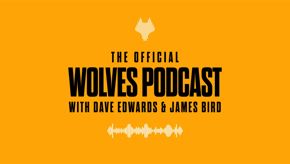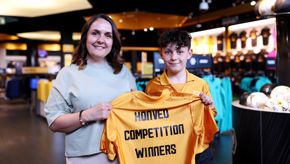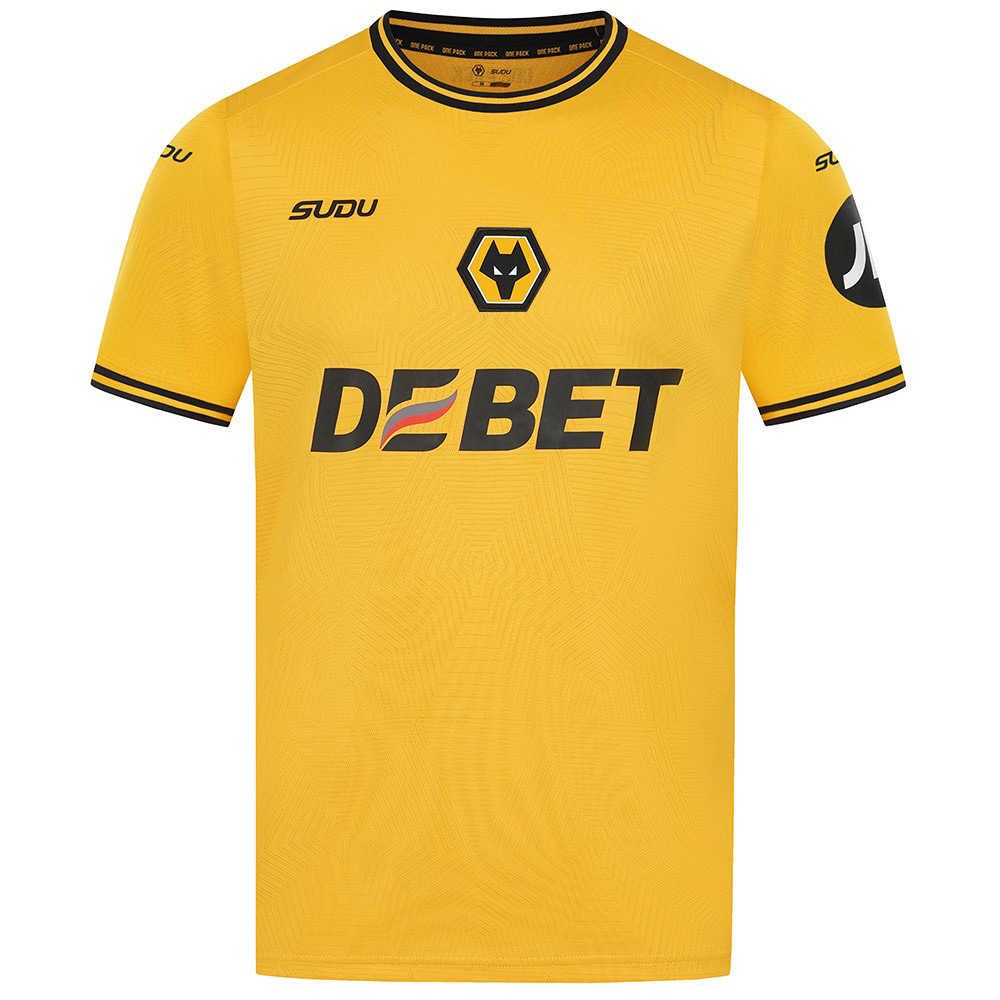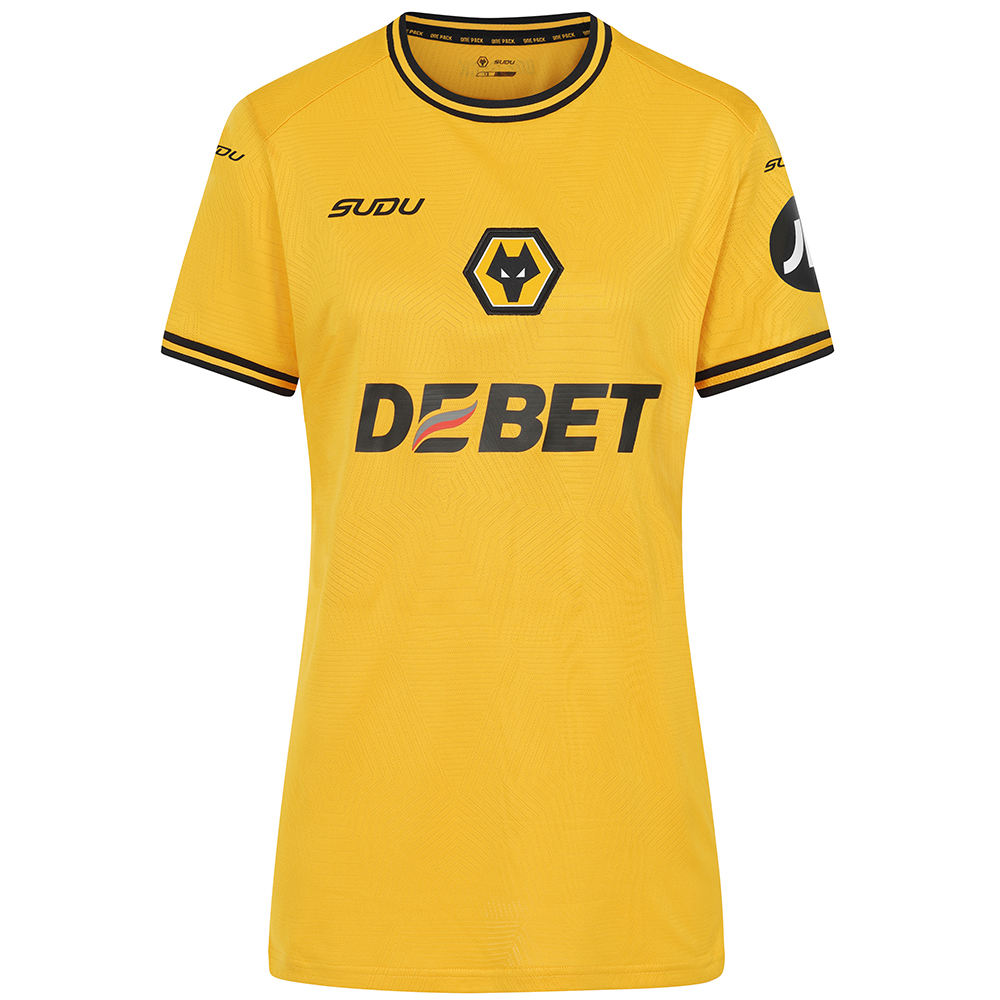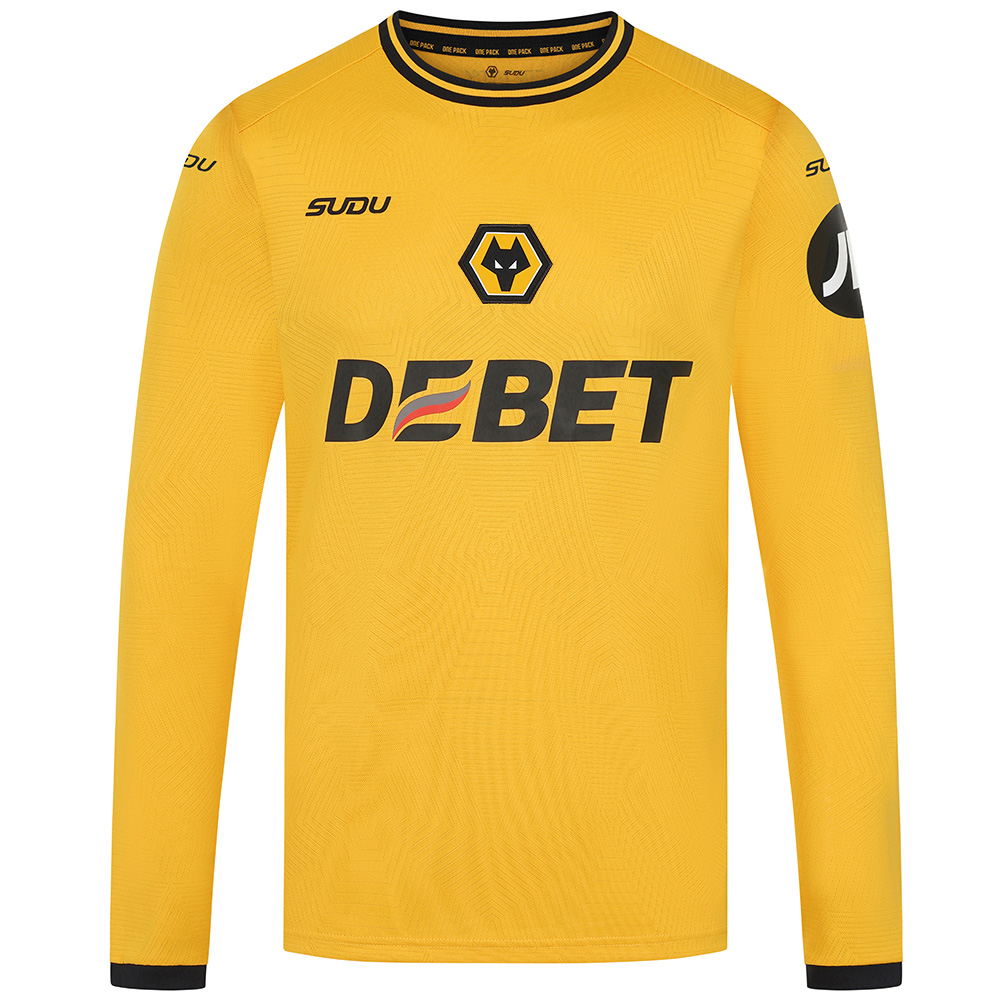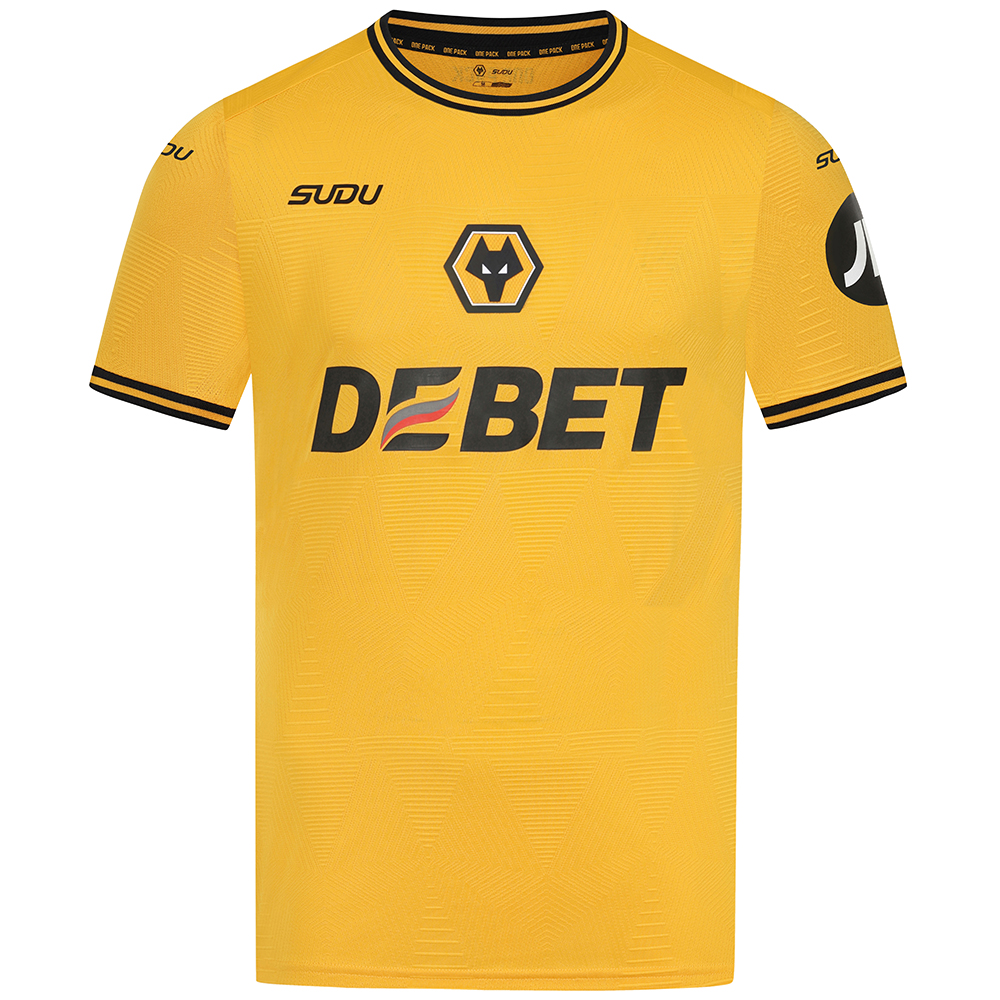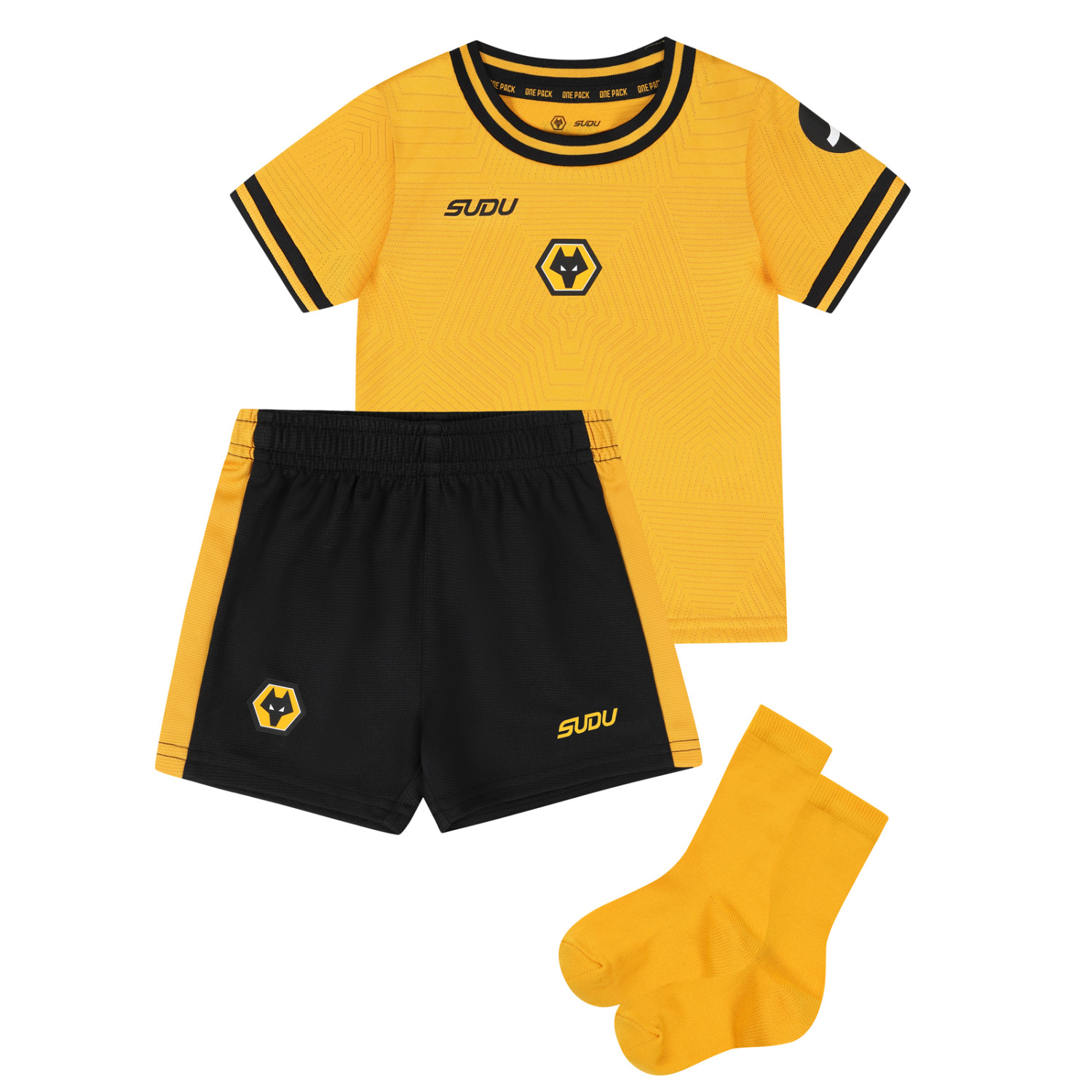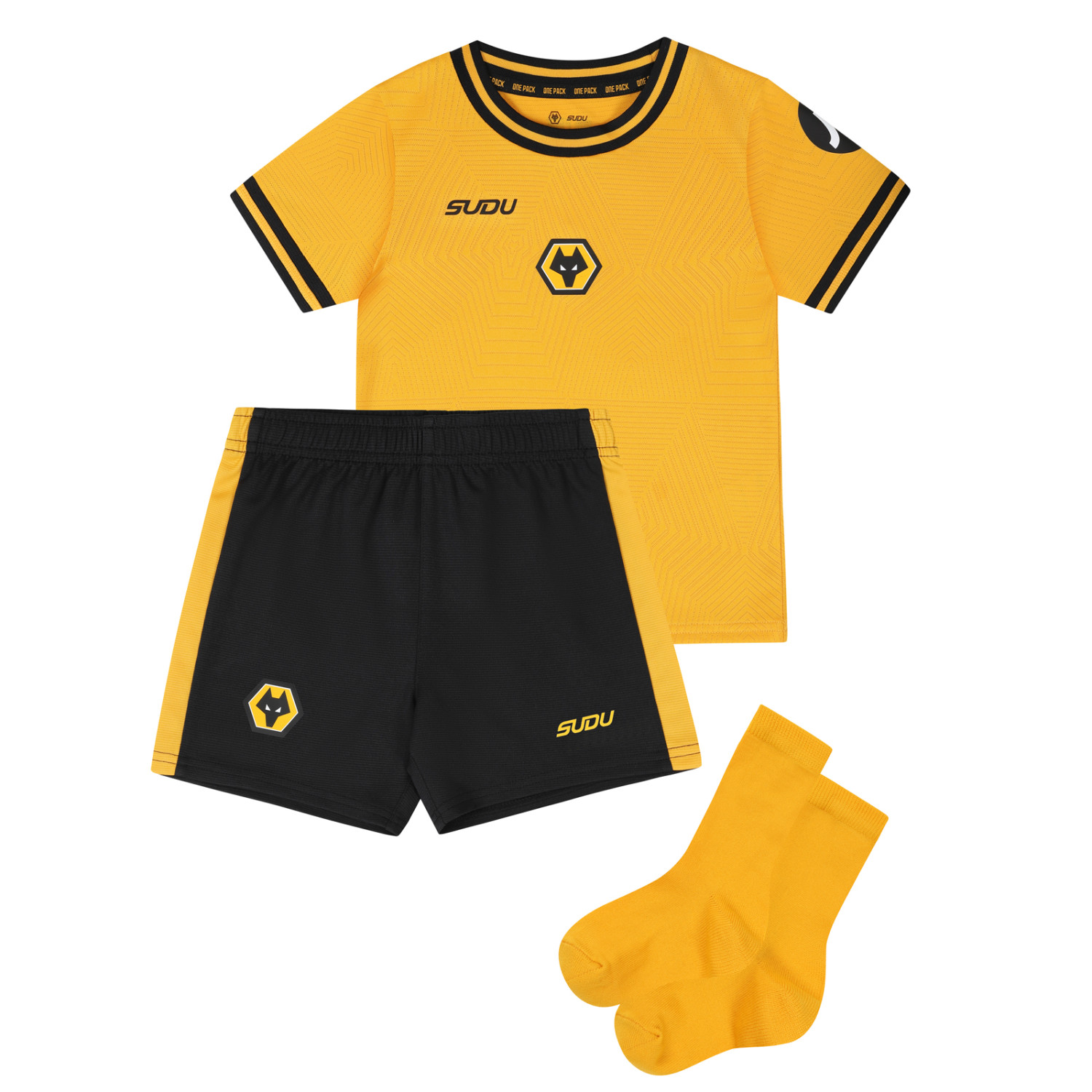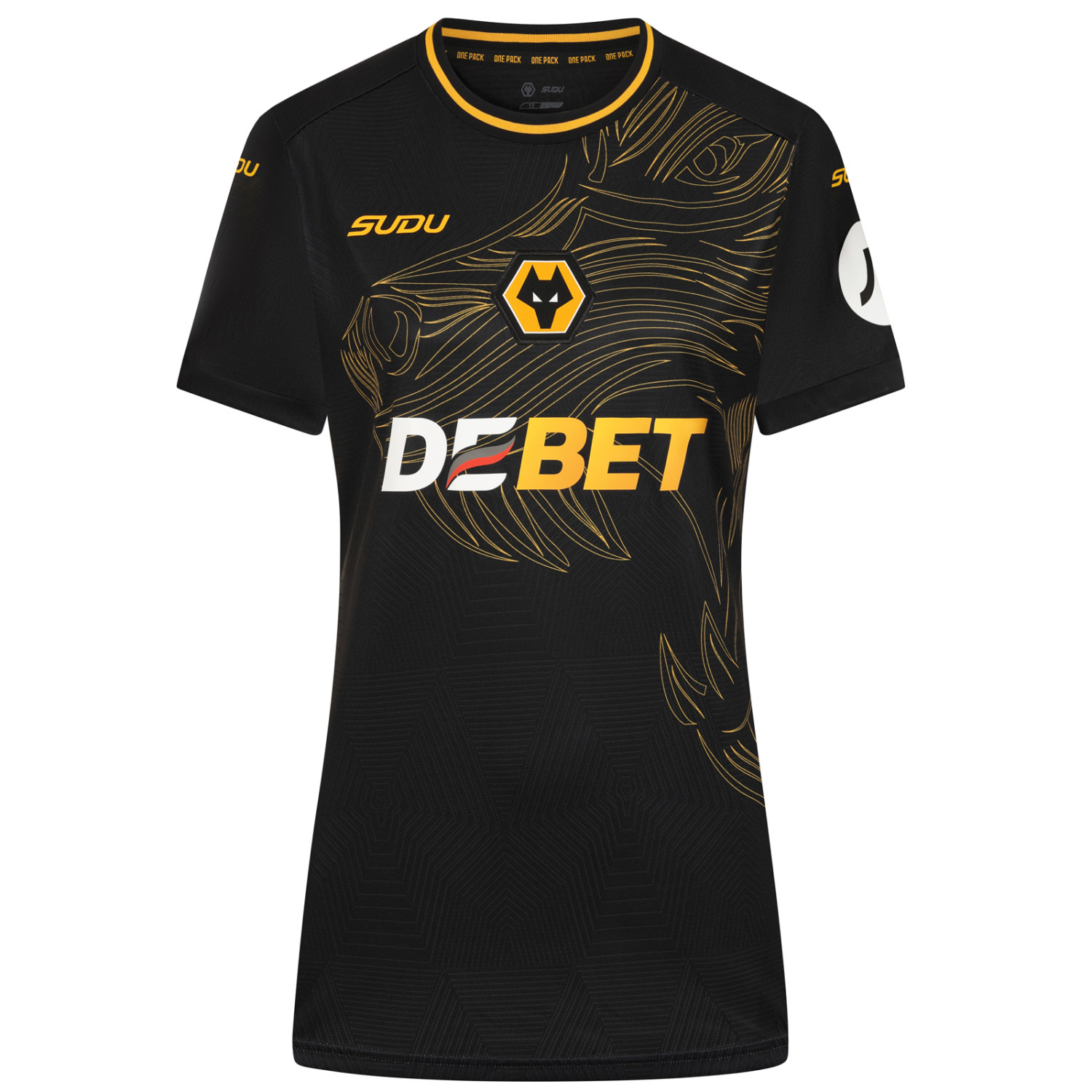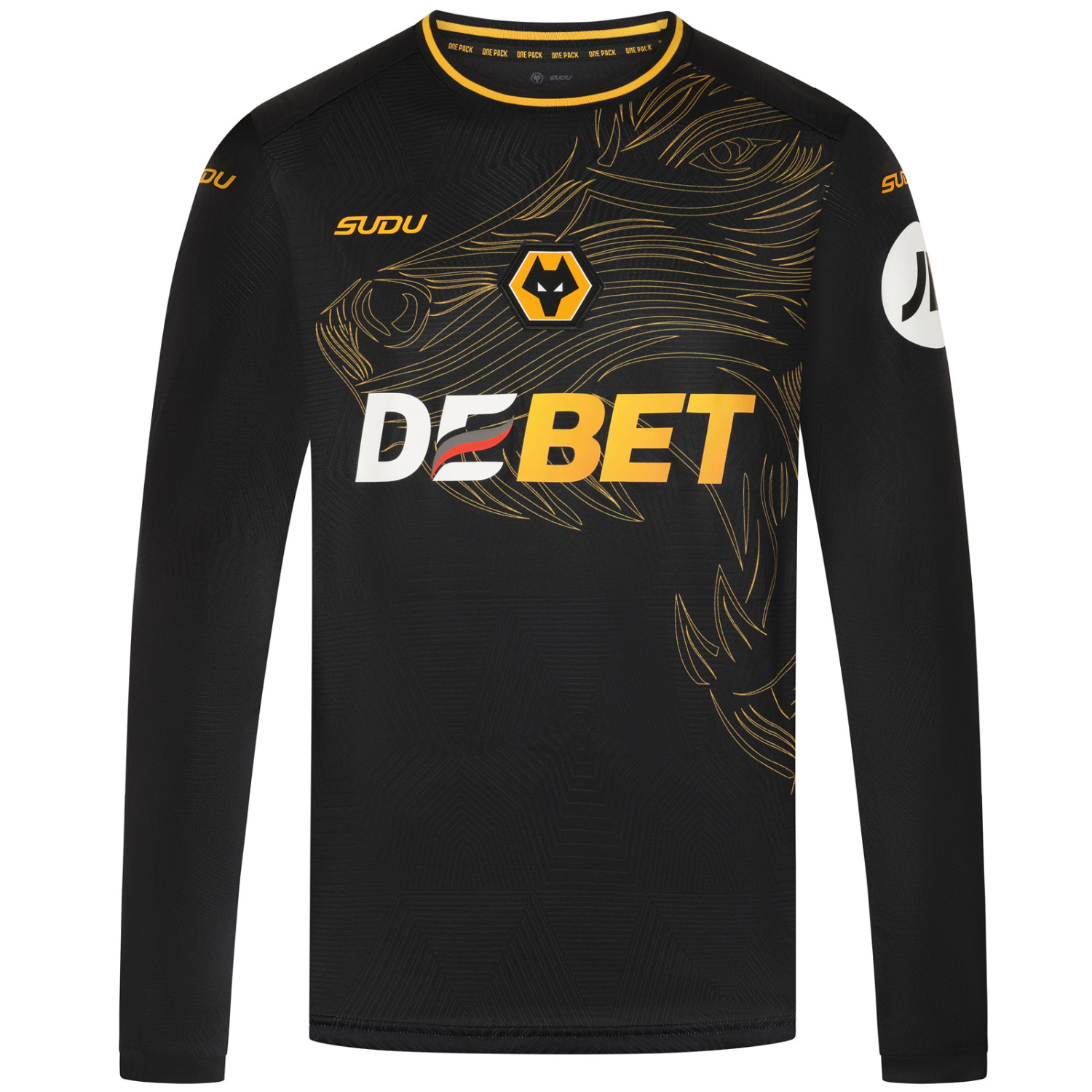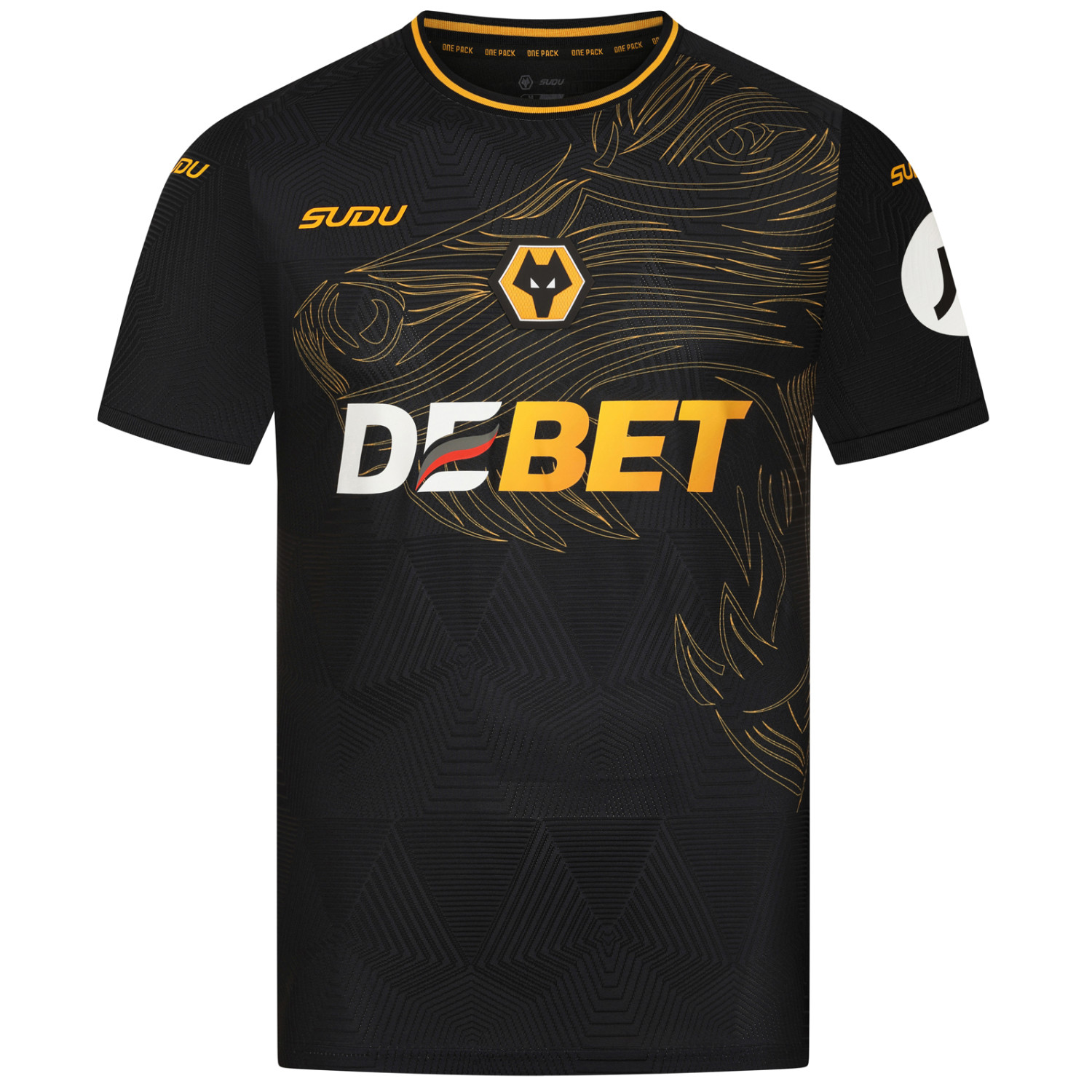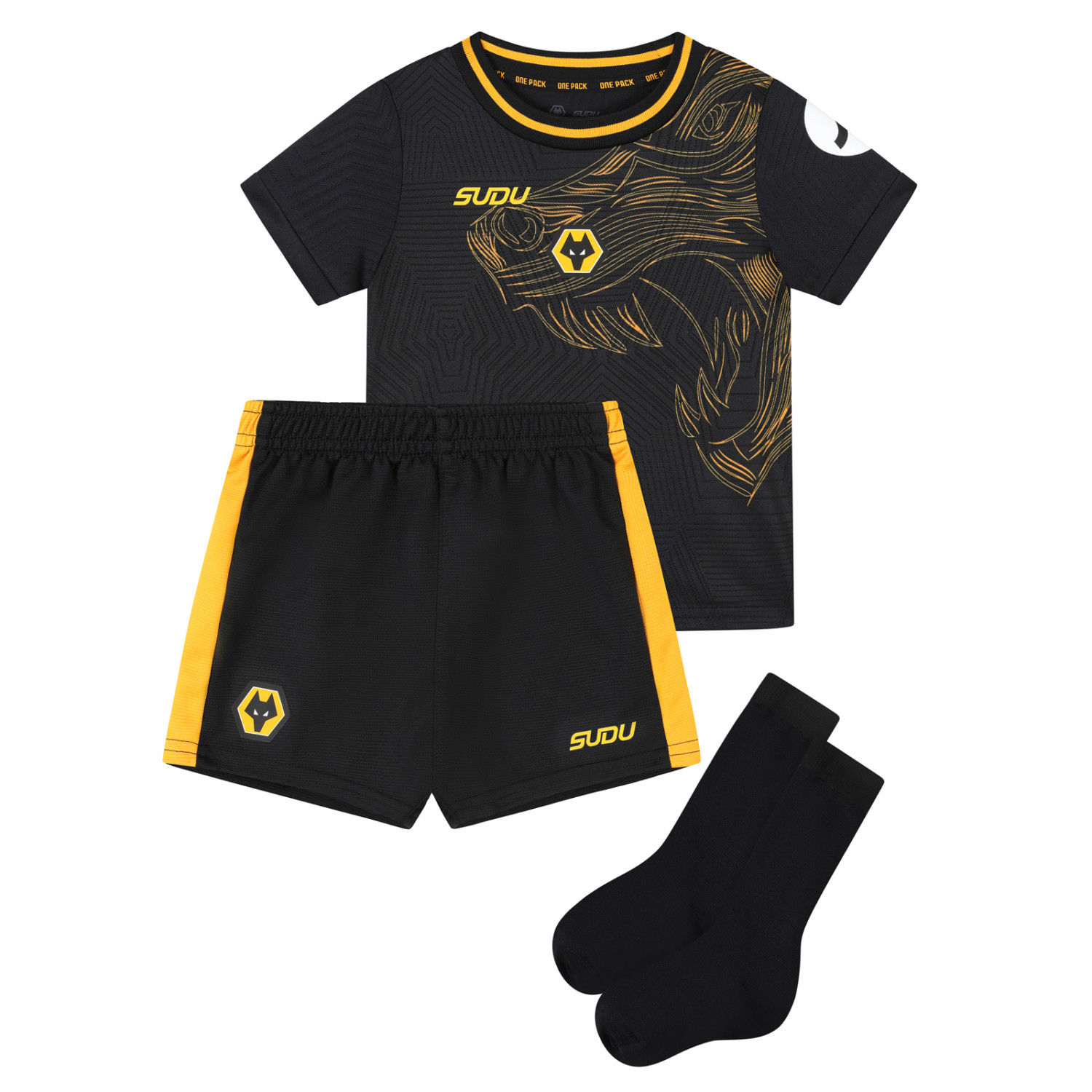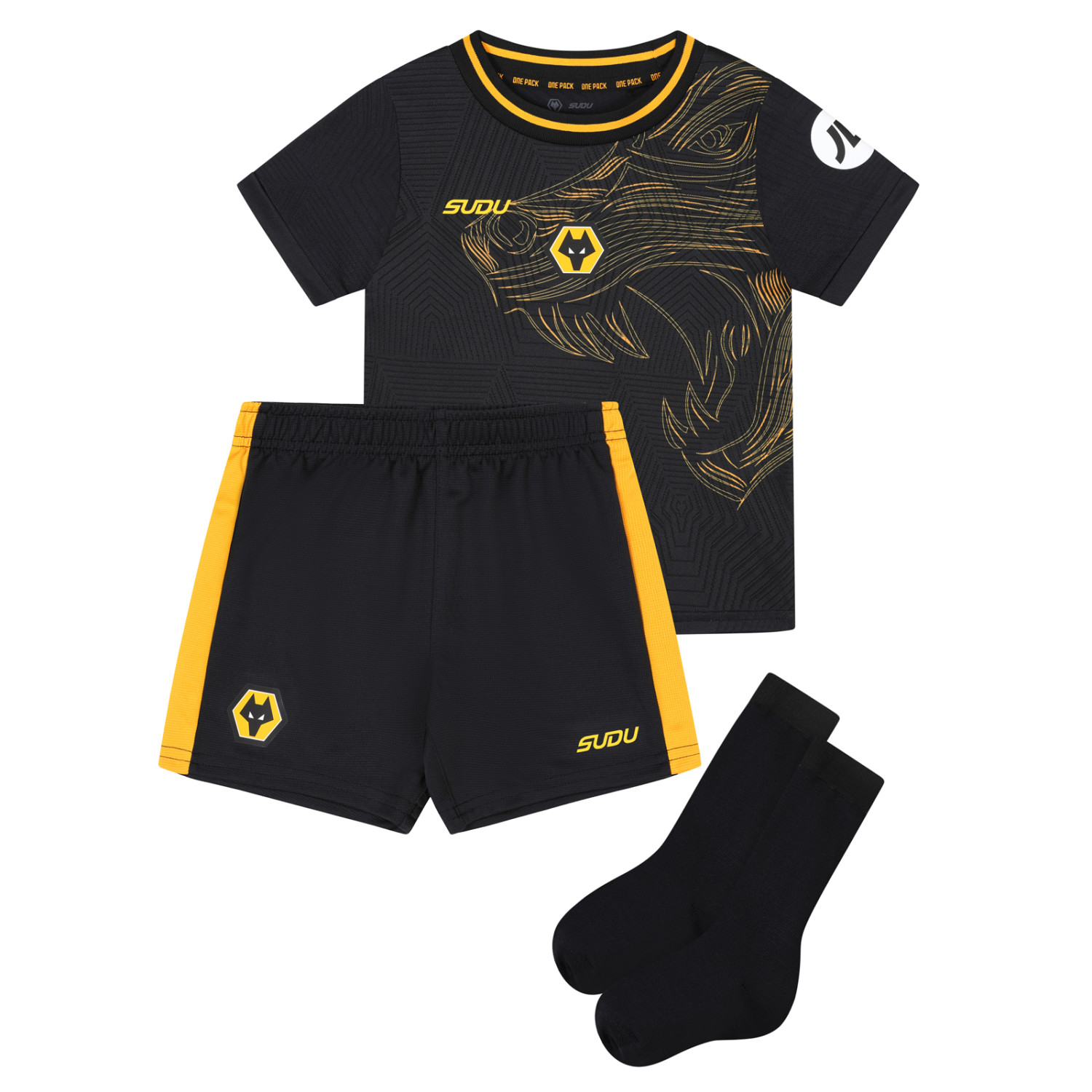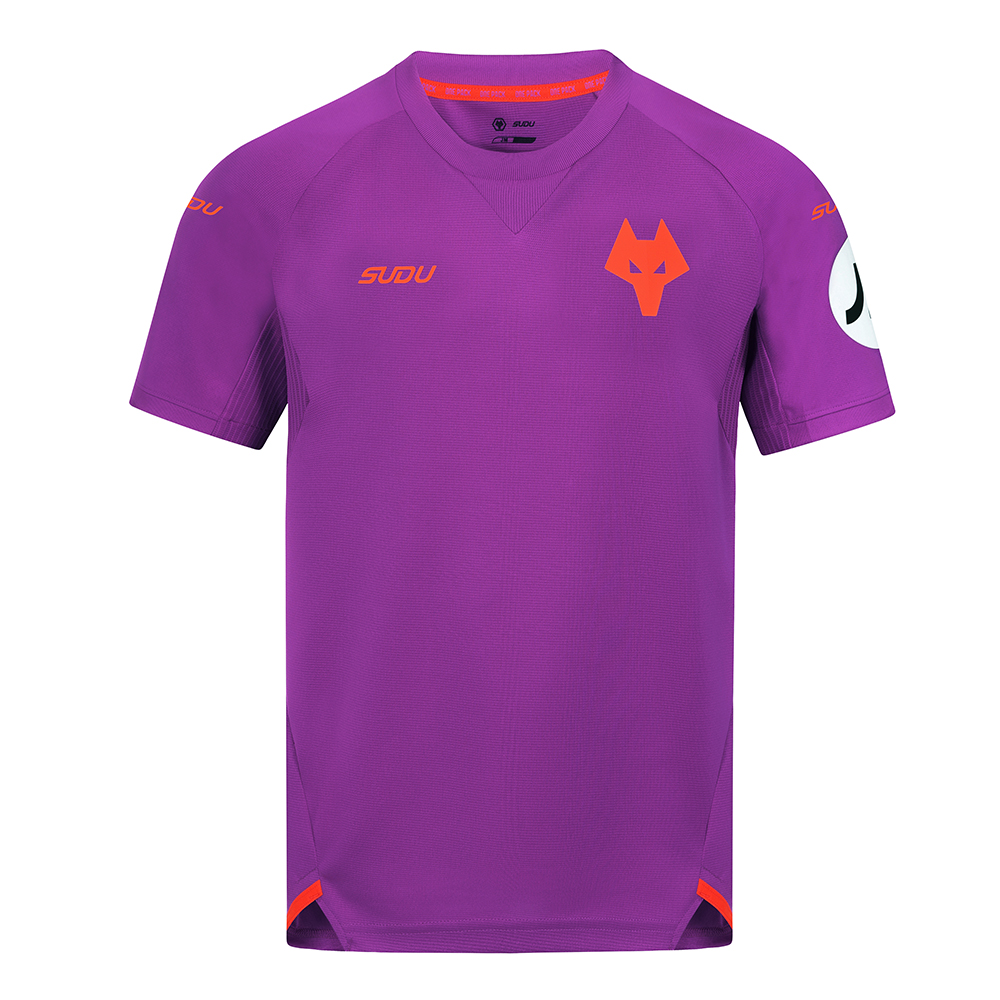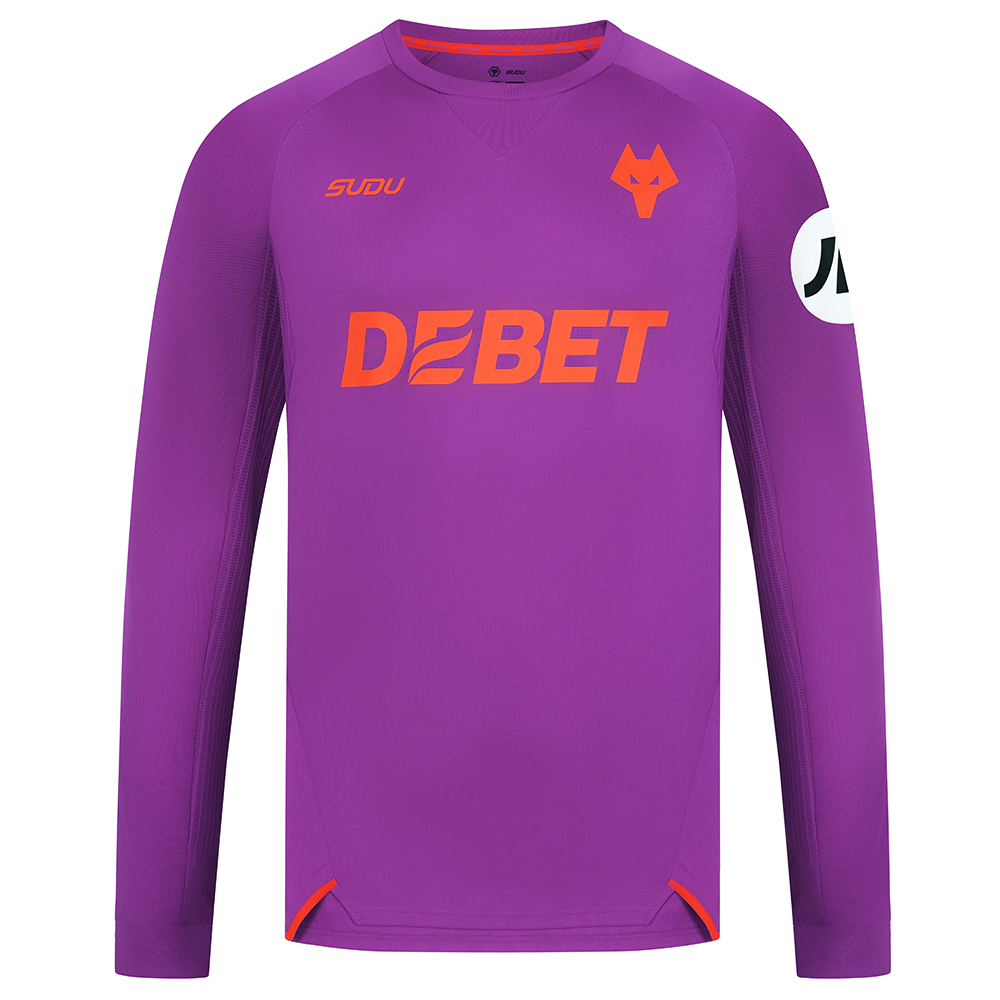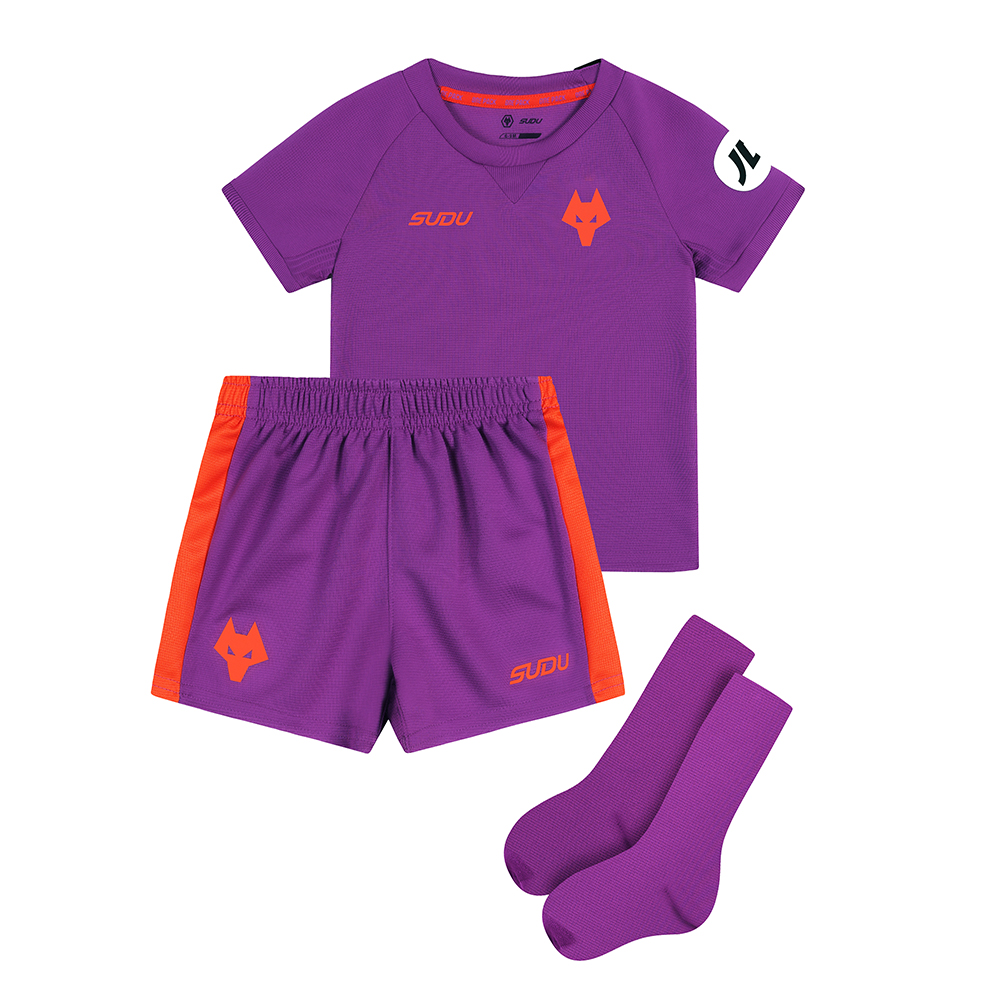WATCH
LISTEN
READ
Johnny Phillips: Jeff, we’ve had a lot of questions in this process directed specifically for you, which I’ll take you through one by one in a moment, but can you reflect first of all on the last 12 months, an eventful 12 months, since we were sat here last?
Jeff Shi: Yes, I think it’s quite interesting because last season was not so good, we felt a little pressure to have a new season, how to tackle the season, how to make the preparations, but so far so good. I felt on the pitch, off the pitch, we were doing a good job.
JP: What do you see the vision being for Fosun over the next three to five years?
JS: It’s always to be the best. Of course, how can we define the best or not the best, it’s hard to say, but our definition is we want to have the best-run club and it means financially to be healthy and on the pitch we are competitive, and if we have any chance, we should compete with the best. So, for example, if we have a chance to go to Europe, we will try. If we want to be a young competitive team, we will do it. So, I suppose, for us it’s more about how to have a squad, have a structure, have an organisation prepared for the long term, not just for one or two seasons, so that’s what we are working for, so we always look at the long-term things.
JP: What do you think a reasonable level of expectation for supporters should be? Do you feel that Fosun and the supporters are on the same page with what they want?
JS: Actually, there are a lot of supporters now around the world, so if we are talking about some supporters on social media here, for Wolves, the first-team, I think maybe not totally on the same page, I can admit that. But if we are talking about all the fanbase around the world, so, for example, some fans from America, some fans from China, some fans more interested in esports rather than football, some maybe are just new fans to Wolves, so I think more or less, for the majority, we are on the same page because most of them hope we have a bright future and they know where we are and they know we’re always challenging hard. But for maybe a small portion of the fanbase, maybe because they hope we can do better than now on the pitch, maybe sometimes we feel it’s out of our reach, but it’s still a good thing because they are inspiring us to do better and better and I always welcome different views and to tell us some different angles, then we can think whether we are doing right or not. I’m not expecting every fan to be on the same page as us, but I think for the general direction, most of the fans will agree we’re on the right track.
JP: Those supporters you talk about who are overseas and see different elements of the club, how important are they to you? Why do you think they are going to make a difference to the success of Wolves?
JS: They are more and more important. First, it’s like a family, you want more and more fans joining the family, and also with a bigger fanbase you have a much bigger power commercially to attract partners, sponsors, even sell more merchandise around the world, and it will help us to have a much better commercial power to compete with the top six. Otherwise, if you only leverage the maybe 200,000 fans here in Wolverhampton, I think it’s no use because you cannot compete with maybe 100 million fans for Man United, so it’s very important to have the attraction, to attract all the eyeballs around the world and make our fanbase much bigger than the local area, then we have the chance to be a global powerhouse, then it’s the starting point to be a worldwide club.
JP: Are you seeing a difference already then? Can you see that changing?
JS: Yes, for example, we had new investors joining Wolves last year, Peak6 – they’re from America and they’re not from here, but they have a lot of interest in our strategy about football. They are also fans of football, but they are also interested in esports, so they agree with us about our strategy, so it’s not so hard to find a good friend like them, but they are from the US. And also we have more and more sponsors to come to see the whole picture for Wolves: in China what we are doing, in America what we are doing. To be honest, off the pitch, I have seen a very, very good change, also very positive signs and for us to see the future. And what we have been doing is quite good at the moment.
JP: How do you assess that development then off the pitch? Do you feel that that is in a good place and can you enlighten us more with what is going on there, away from football?
JS: It’s about brand. Wolves can be a clan, a clan means only for local fanbase, but we will always be smaller compared with some big global clubs, but if we think of us as a brand, you have to draw the brand with a good picture. First of all, you have to inject some elements into the brand. What is the brand? So Wolves, what does Wolves mean? It means the city, it means the local 200,000 people or it means something all the people from different countries can like, they can love, they can like to have. But the cultural difference from different countries, some new fans they like something and some old fans they like something else, so you have to find some mutual points to meet their expectations, so it means you have to embrace something new like esports, to embrace the younger fans, and from esports you can have more engagement online with the fanbase, much, much more than what we can engage with the fans in football, so then with engagement, you can talk with the fans, you can communicate with the fans, you can have the fans feel more belonged to us. Then, even for football itself and the older fans here or the new fans from China, from America, from Africa, their appetites are not the same, so you have to find a way, so some players from South Korea, some players from America, and I think they have their local heroes. I think it’s very hard to convince a Chinese fan to support Wolves without any element from Asia, from China, so you need to have some emotional attachment included in the club. So if you consider all of this, you have to have some piece here, some piece there, to build brand awareness, then it’s also very recognisable to everything. It’s not only about the history of Wolves, we were built in 1877, it’s not enough, it’s good to have, but it’s not enough. So what we’re doing is trying to put more elements into the brand, then make it a more universal, global brand with more general brand attraction for everyone around the world, that’s what we’re doing.
JP: Yeah, I understand that. Would keeping Wolves at the highest level on the pitch, in the Premier League, be key to that brand awareness though? The others wouldn’t succeed without that, would it?
JS: You can have a strategy to spend money only on the football team, it’s easy to think about – you don’t need to do esports, you don’t need to do whatever. However, if we look at the financial accounts, I think it’s very transparent, we all know the financial fair play rule for the Premier League here, we all know the new rule for European competition is even more strict, so then you can see the top line, the bottom line for the club, you can see the revenue size. If you only put the money into the club itself, even if you have the money, you have unlimited money, you cannot put enough money into that because the rule, the cap is there, so how can we compete with other clubs with a much, much higher ceiling for spending? It’s not about how much money you’re having, it’s about how much money you can put in, so then you can see the ceiling. So I would rather explore different alternatives to increase the ceiling, rather than just sit here and talk about the money here or there, it's no use, because the rule is the rule, we respect the rule. Even for some newcomers like Newcastle, everyone knows about the rule. So I think if we talk about the clear limit we’re having now, what we’re doing maybe is the only choice, and also commercially, strategically, I think it’s a very sound strategic decision to go forward.
JP: So what level of investment can supporters expect in the team in these coming months, say, for example, over the summer? For the team in terms of players, can they expect big investment or are you saying that will be reined in?
JS: Yeah, I think it’s still not too easy to find enough space and for the last three years it’s been impacted by the pandemic, also impacted by the new European rule. I have to talk with the financial guys in the club. I think it’s quite tough for every club in the Premier League, so if you look at the ceiling, it’s still not easy to just spend. I think the right word to say is it’s more to optimise, or to rotate, or to reshuffle the squad, because some place may go after a long time, some players may come, some young players may grow up, and we will have a new team for sure. We will maybe have some changes for the squad and we are aiming for having a better squad. However, regarding how much we shall spend to reshuffle or optimise the squad, I don’t know. I will have to look at the ceiling, but it’s already six years Fosun and me, we have been doing the same thing. I don’t think in the last six years, for every transfer window, we change a lot, no, we always stuck to the same strategy, so I think I’m already used to the challenge and I’m not scared about this. We will do something to have a better squad.
JP: It sounds like this might have to be a slightly different transfer window just in terms of the changes, judging from what you’re saying there, would you have to sell certain plays and then bring in different ones? And will the squad look more different than it has at any stage, do you feel?
JS: I think for every season you have to have some new players, some older players, and also it’s common sense because it’s not all about us, it’s about the players. If a player doesn’t play too much, are they happy to stay in a squad? Or if the player has a better offer from another club, if the price is good… So sometimes it’s not only about us, it’s about every player. So it’s very common that we will have a new squad and some changes. And, also, I understand football is about managing the cycles. Nowadays, it’s harder to have a player play 20 years, like Steve Bull, it’s not possible, because every player their career cycle’s quite short, maybe 10 to 15 years, so you cannot ask them to stay here forever. But also it’s a good chance to find some young players, some new players to come. So it’s always about buy, sell or promote some players. Also, the forms of players will fluctuate, so for the last season maybe they are very, very good, but maybe this season not so good or the next season they will come back again. Also, a different coach has different views. So for every season we will do some changes to enhance the squad.
JP: One supporter has asked when it got to January this year were you tempted to spend more money because Wolves were in a very good position to push for Europe? Was there ever a temptation to do that?
JS: I think it’s not about money. It’s like this, if we have a very good player and if we are sure he can come to help us to be in the top six, top four, of course we will do it. But it’s about whether we have available players in the market. I think in January generally it’s very tough. You can see not too many clubs did a lot of things, only maybe Newcastle. So I don’t think it’s about the budget, it’s about we haven’t found a good player then.
JP: Newcastle is a good point. One supporter has said with their rise and their recent takeover, do you think it’s going to make it more and more difficult to put Wolves at the top of the English game? Do you feel that getting Wolves where you want them to be could be very difficult?
JS: But it’s still about the ceiling, right? If the Premier League, or if Europe are clear about the rules, the regulations, the ceiling is always there. Newcastle is a good club, a big club, and maybe if you’re talking about the stadium capacity, maybe commercially, just about the club itself, maybe they have slightly higher potential than us, but not too much, so still not comparable to the big six. So maybe they have a little bit higher ceiling there, but not too much, so I don’t see a difference between us too much. Yes, they can spend more, but also they will reach a ceiling sooner or later, so they will face the same challenges as we are facing now. So I see them to be compared to us, but not someone we cannot compete with.
JP: Has your opinion changed of how far Wolves can get in the Premier League since you first came here? Have you sort of realised that there’s only so far they can realistically go or do you still dream big and still aim for the top?
JS: I think if you ask me, my honest answer is I don’t know, because I’m not the fate controller, I don’t know. But maybe one year we will do something like Leicester City, you don’t know. What I know is if you want to have long-term success, for example, top eight, top seven, top nine, top six, whatever, always stable, the difference between top six and us – for other clubs like us, Leicester, West Ham – we can do something good for one season, then maybe not do so well the next season, but the big six they are always very stable. So what I’m thinking is, of course, even with the current squad, maybe next season we can do very well, maybe we can go to the top four. This season we were closer but still not reaching there, but it’s hard to say for any one season, a single season, we cannot do this. But for me the task is not about only one season, it’s about how to make sure Wolves can have a strong capacity and ability to stay competitive always for a long time. You can see in the last few years, it is easy to have a new owner come here with strong ambition to buy players here and there and if they succeed, good, and if they are not succeeding, then they will sell the club and a new owner will come and maybe they will replace the whole squad, or whatever, and it’s not good for us, especially not good for me and the staff. Of course, I’m working for the fans, but I’m also working for myself, for the owner and for the staff here and we want a steady environment to develop and to grow. So we’re not working for the fans to say, ‘Oh what do you want? I want to do it for you,’ then maybe the next day I lose my job. I think if we have some mutual understanding on this and the long-term success for everyone’s career here, it’s more important. For the owner’s safety on the cash which has been put into the squad, it’s important. We don’t want the owner to lose the money, then wash his hands, then be gone. Too many failed cases like this happened in the last 10 years. How many owners have done this: bought a club, sold a club and then be gone, losing 100 million, 200 million. We don’t want to do this and if we’re talking about the priority, we always put the owner’s safety, the staff’s growth, maybe ahead of fans’ requirements for one or two more players. I’m very honest on this, and also eventually I think for the long-term future, it’s better for the fanbase to understand that and also it’s better for the club. So that is my view on how to balance the long term and the short term. So if you ask me whether we will spend a lot or not, if you go back to the scene in my head, it’s about if we can have the long-term benefit, we will spend; if it’s not for long-term benefit or it’s not for the health of the club or the group, we will not do it. So it’s hard to say we will do it or we’ll not do it, it depends on the economics, it depends on the chance, it depends on our demands for what we want to do.
JP: It sounds deep down then as if you do know about where Wolves can be in the Premier League, because realistically they can’t spend the money necessary to break into a certain bracket of club at the very top…
JS: We can’t.
JP: So in a sense you say you don’t know what the future holds, but you’ve certainly learned from when you first got into the Premier League – would that be fair to say, you’ve learned where you can take the club?
JS: Yeah, if you want me to admit, I say something wrong, it’s okay [laughs], but please understand it’s six years, 10 years, people all grow up, so don’t just try to grab something I said 10 years ago, six years ago, to say, oh, Jeff you have said so, I think it’s a kind of trick, it’s not the right debate. But even not spending as much as the fans want doesn’t mean we can’t build a competitive squad. So even, for this season, we have some frustrations, but we are still eighth now, it’s the moment. We have been doing something right, maybe not as good as the top six, but we have been doing something right. My strong view is that it’s about money, it’s also about the intelligence, the efforts, the hard work and the know-how on how to build a squad and how to be competitive on the pitch. On this side, the last five years have shown we’re not too bad on that, so for this side, you can’t ignore it. I think it’s half and half – of course you need the money, but also you need the know-how, you need the effort. It’s not like a kid’s game: you have the money, you’ll win. No, you will not necessarily win, you have to spend the money more wisely, so it’s not easy.
JP: Fosun have invited investment into Wolves in the past, is that something you would do again? Are you looking for external investment?
JS: Yeah, I think we are not only looking at investment to the club, we are also looking at maybe the future IPO for Fosun Sports Group. I am also the chairman for Fosun Sports Group, so Wolves is of course the main asset in the group now, but if we want to do some initial public offering, I think we need more investors to join. Also, eventually if you are in the public, in the market, you have maybe more than 10,000 investors around the world, so I think eventually the shareholding will be more diversified.
JP: One point I want to pick up on is the idea of Fosun Sports Group being publicly floated, can you give us a bit more into the thinking behind that and whether or not that’s something that’s realistically going to happen?
JS: Yeah, it will happen. I’m confident, but I think maybe to be there we still need maybe two or three more steps. We need more revenue size, more market share maybe to have a better IPO. I think the IPO itself is about the money, about the financing, about the funding to do something better, but also it’s about a very good chance to do some branding, just to tell the world and welcome the investors to come to join us. So it’s very important to pick a good moment, a better moment, and to have a strong commercial or business readiness, so I’m not in a hurry to do that, but I foresee it in maybe the next two or three or five years, but we need to have something more to clarify the story about our fanbase, how to monetise for them, and some business not from football but that can be related to football, can collaborate with football, so that’s what I’m thinking about this strategy.
JP: And that would involve quite a dramatic change for the way the football club is presented if that happened…
JS: Yeah. For example, we are doing music now; I’m talking with Warner about this. We all know that football is also show business, it’s like a music event or whatever. So if you look at it that way, football is also a part of the entertainment industry. So if you look at a general view, it’s not too different from music, games, whatever, so if you’re thinking about a kind of thing for entertainment, some strength in that to attract the fanbase to have some funds for entertaining in this and if we can provide the right product to them, it’s very good and also we can add something together with football itself that will share the same strengths and advantage to provide the same service to the fans. Because eventually for IPO, it’s not like a club; they have to understand what’s the growth strength or potential from the corporate and then how to get the fanbase to pay real money to buy your product, so you have to convince the investors on this and you have to have a real story to tell, so that’s what we’re working for. For the Premier League, of course, we have the TV broadcasting, we have the ticketing office, but it’s only from the league, it’s because the league is doing really well, the Premier League is going every year. But you cannot say it’s because Wolves too much; there’s still a lot of benefits coming from the league. But what we want to tell the fanbase, tell the investors is, of course we have the benefit from the Premier League, but also we have something very strong of our own and put them together and we’re stronger than the other competitors.
JP: So will that require more growth before we get to a position of a public float, because it’s not really happened in football. Manchester United are obviously publicly listed, but it’s not something that football clubs on their own traditionally do, but as Fosun Group, do you think it’s a logical step?
JS: It’s a logical step because we’re not positioning ourselves only as a club, so we’re not benchmarking Manchester United or whoever. We have a unique story to tell the world and we’re doing something very interesting, in how many fans we’re having, how they like the brand or the logo or the club. So we have our own story, but it’s different, it’s definitely different from Man United or other clubs.
JP: The club has also taken out bank loans during your ownership, why has that been necessary?
JS: I think it’s a common practice for every club, because it’s good to have the power to have a loan, because for every bank if you convince them to lend some money to us, they feel it can provide safety to them. For the Premier League clubs, we have a strong cash flow from TV broadcasting, we have a strong brand, so it means we have the power to convince a lot of banks that they’re okay to lend the money to us. Actually, it’s an advantage to us. For example, like Man United, if you’re listed, you have a better advantage because you have a better leverage to attract different lenders, so they will have a higher debt and also with a lower interest. But for us we’re just doing the same as other clubs are doing and it’s not so special.
JP: It’s not unusual. Where does Wolves sit in relation to the rest of the Fosun Sports Group and then the rest of Fosun as a whole? How big is it within that, how much of a priority? Supporters still want to know where Wolves are.
JS: For Fosun Sports, we have Wolves, we have esports in China, we have esports in the UK and we have game publishing in Asia, Japan and China, and also we have a minority shareholding in Evil Geniuses – they’re a top team for esports in America, so that’s basically what we have for Fosun Sports Group. Of course, for every year we try to invest, we try to expand, so for next season maybe we have more elements added into the group. For Fosun, of course, Fosun Sports is very important and growing fast inside the whole group and we are very important to the board. And, also, the story here about Wolves, about the growth for the whole of Fosun Sports, it’s also a good story for the headquarters.
JP: How much do Fosun speak to you about Wolves?
JS: They’re just like a kind of shareholder, so of course I talk with them maybe every month, every quarter about financials, about progress, but in general I think they don’t interfere too much, they are just very happy to be an investor and they want us to be successful. Chairman Guo himself, of course, he has a strong interest and passion for Wolves, so I talk with him very often about the games. But, generally, if we talk about business, we are quite independent.
JP: At the last Ask Wolves, it was made clear that the club wouldn’t be putting a lot of money into developing the women’s team, but we’ve seen great success with the women’s team in this last year, what are your aspirations for them?
JS: We still have not been pumping too much money into the women’s team, but what we’re doing is providing good conditions, or facilities to the girls. It’s still the same; I talk with Scott [Sellars] a lot. I think it’s more important to provide the local girls with a strong chance to participate in football from a younger age, so they can share the training facilities here, they can share the pitch here. So, for example, you can see maybe for the morning, for the afternoon maybe it’s for boys, but in the evening it’s for girls. And, also, we are sharing the coaching team, so the coaches are helping the girls too, so they are sharing the same programme, the same training courses. That’s the base, then what you have seen from the results on the pitch I think is a reflection from the efforts from the bottom level. But we still have no strategy to spend a lot of money on the squad to try to promote again for next season, no. The same with Wolves, we take our time to build a solid base, to have a good community for women’s football, and then we will see what we can do.
JP: It’s fascinating to hear some of the plans you have, not just for the football club but everything that’s happening away from the pitch. Is it all done, do you feel, with the future sustainability of Wolves being a priority or being part of something bigger?
JS: I think Wolves is always the main asset for us, for Fosun Sport. Even in the future, Fosun Sports has more things to come, but Wolves is still the main part. The better Fosun Sports are doing, the better and the more capacity we have to support Wolves, so I think it’s mutually beneficial. I don’t see any contradiction in that, but I think it’s still very important for the fans to understand that financially, commercially, you have to have a good environment or base to support the club and you have to have a very strong cash flow, a strong fanbase to pay the money to buy your products, then year by year, you will have a better squad for the future. But if you have no long-term sustainable financial, commercial environment… it’s like a plaything for a rich man: you can pay the money for two or three years, then you will be bored by this. We don’t want to be a plaything, we want to be a well-run business. In the meantime, it gives us a long-term chance and if you have a long-term chance, even if you make some mistakes here or there, you have the chance to crack it. Otherwise, if you lose one day, then you lose it all so that’s the main thinking in my mind.
JP: They’re all the questions, so thanks for addressing them, but is there anything else while you’re here that you want to say, or anything you feel is a good opportunity to speak to the Wolves fans about?
JS: Wolves is a club, of course, but in the meantime it can become more like a corporate, so we’re both a club and a corporate. So sometimes when you talk about a club, it’s more like a family, it’s more like an organisation, not pursuing profitability, not pursuing economic return, but only for the passion or the interest of the fans. But, nowadays, Premier League clubs are more and more like a corporate. Inside the corporate, we have a club, a view about this, and that’s a bigger, bigger change. Maybe when we came here six years ago, before the promotion of course, it’s only a club, but now it’s more than a club. But eventually, I suppose, a corporate environment or a strategy or an identity will help the club to have a long-term and sturdy future, because financially, commercially, businesswise, it’s more steady. For you, for your parents, for your family, your sons, daughters, they can see in maybe the next 30 or 40 years, it’s still a good club, it’s not like a club going down a league or two to the Premier League, so what we’re doing is to make sure it’s a long-living corporate and a long-living club at elite level. So that’s the gap I have seen maybe. I also read some social media content, and I see it’s not so easy to reach a consensus on this, but I’m the leader now for the team, so I want to say to the fans very clearly we put the organisation as a corporate first rather than a club.
JP: No, that’s interesting and it does explain it quite clearly. Obviously, supporters won’t necessarily see it that way, but you’re saying that’s life, that’s the way that Wolves are going to operate for the best long-term sustainability?
JS: Of course. You are talking about 20 years in the Premier League, the first promotion is 20 years ago, you can see the longest period is under Fosun, so it means our strategy, maybe not necessarily for every season is the best, but for the long term it’s surely the best.
JP: Well, thanks Jeff and I’m sure supporters will appreciate your honesty there.
JS: Thank you so much.
All 11 instalments of Ask Wolves series two are now live in video, written and audio format and can be found by clicking on the links below:

